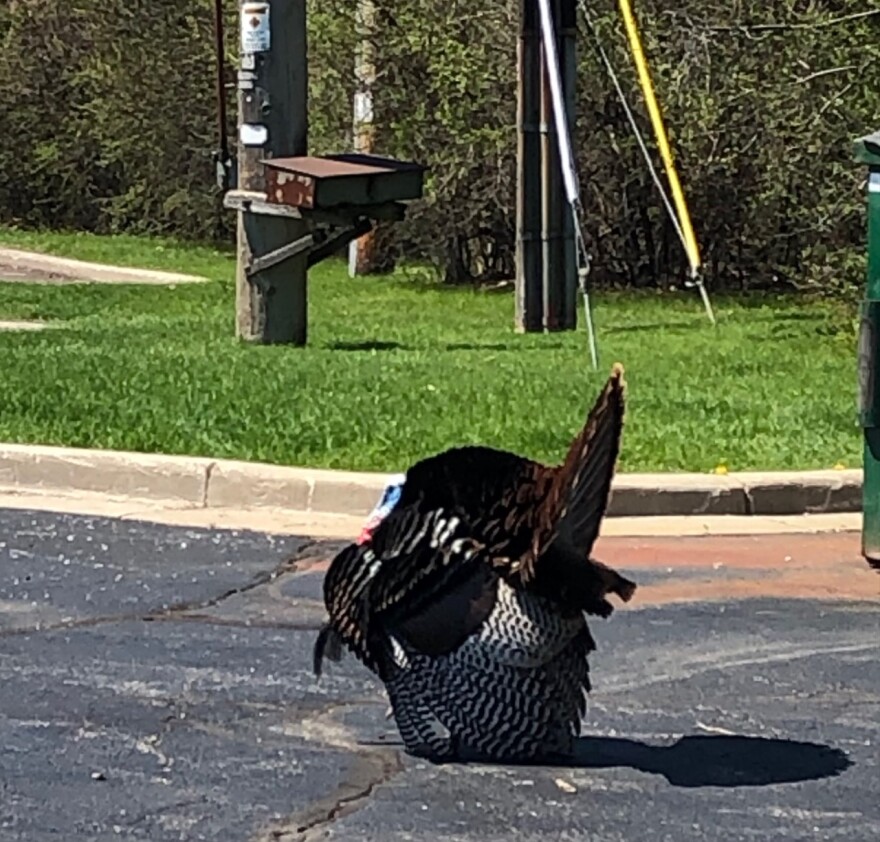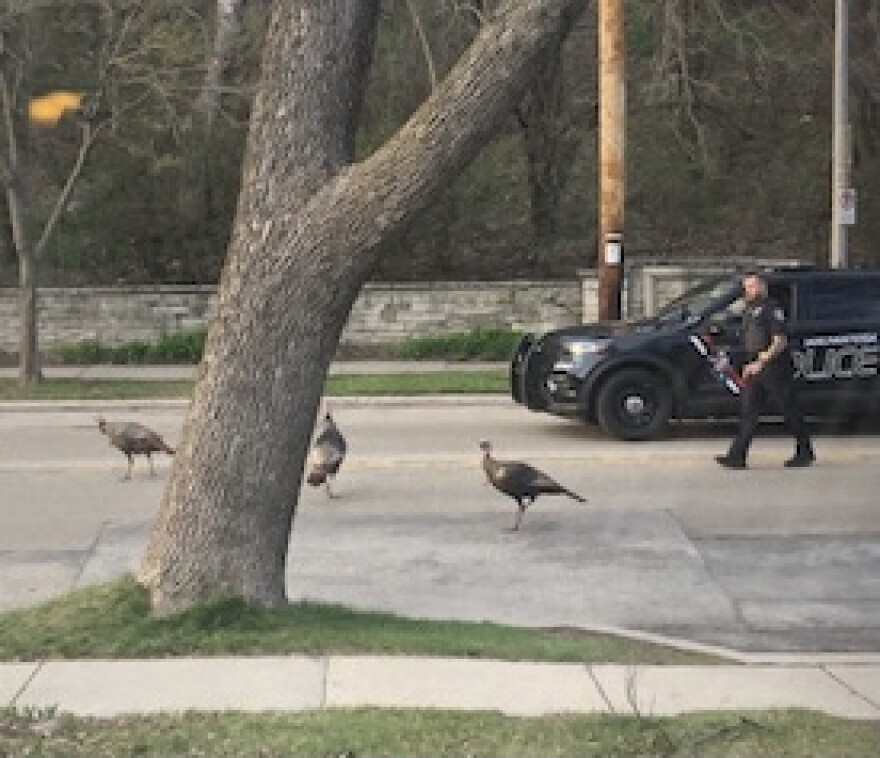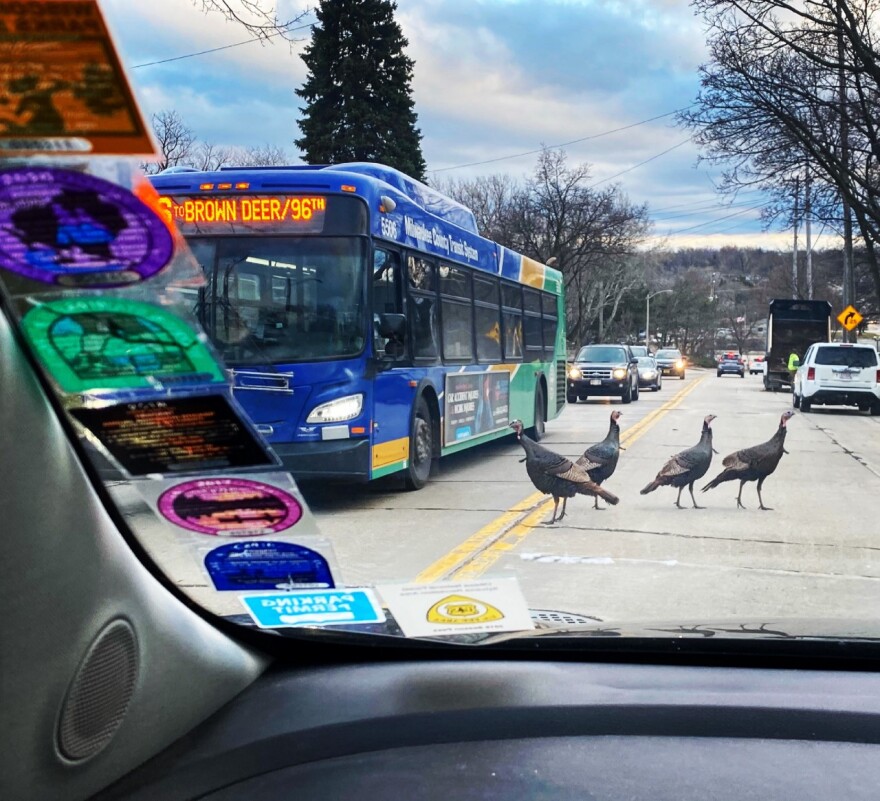One of Wisconsin’s greatest wildlife management success stories has been the restoration of turkeys in the state, according to the Department of Natural Resources.
But the large wild bird isn’t sticking to rural wooded expanses.
Some flocks are quite happy living in the suburbs — including Wauwatosa.
DNR wildlife biologist Nathan Holoubek combed the greenway that meanders through Wauwatosa’s Washington Heights neighborhood.

Although he didn’t spot a turkey, Holoubek said this green space is exactly where wild turkeys would flock. He described the habitat turkeys prefer.
“Open space, mixed with trees for cover, bushy or grassy areas for nesting and then open safe areas where they can see predators coming, where they can forage during the day and use these large roost trees for night time,” Holoubek said. “They’re wonderfully adaptable in suburban areas."
Holoubek said not every homeowner is thrilled about the turkey’s adaptability. “If they’re in your backyard scratching all over and ripping everything up or roosting above your driveway — that can be pretty problematic,” he said.
But people who put out food for birds are part of the problem. Much of the year, Holoubek said, turkeys gravitate to a carbohydrate-dense diet, “which is why they really zone in on bird feeders because bird seed is very high in carbohydrates."
Holoubek advises people perturbed by turkeys to remove their bird feeders, “That solves probably about 90% of turkey issues in urban areas,” he said.
For the remaining 10%, he suggests planting bushes or tall stands of native plants to block turkeys’ view of their surroundings.

“Sight is their number one defense. They see predators and they can fly away. If there’s bushes in your yard, they’re more likely to move away,” said Holoubek.
Holoubek said banging cookie sheets, squirting unwanted turkeys with a hose or installing a sprinkler with a motion detector can ward the giant birds off.
Holoubek calls turkeys a pretty social species but understands why some residents might not warm up to calling them neighbors.
“A turkey is a 20-plus pound bird. It's a pretty big animal and if you don’t understand their behavior, they can be intimidating,” said Holoubek.
Then factor in having been hatched and growing up in a suburban landscape, “They’re not going to run away if you’re walking down the sidewalk," said Holoubek.
One final bit of advice, Holoubek said, never ever set your dog loose to chase away turkeys.
Just a few blocks away, John Pokrandt wouldn’t dream of releasing his little hound dog out to drive off turkeys.
“They’ll chase anything. I saw my neighbor running through his front yard, followed by his dog, it’s a big one, a Doberman or something,” Pokrandt said. “ Then I realized they were being chased by the turkeys.”
Pokrandt said turkeys don’t hang out in his background, they strut right down the his street.

“We refer to them as the east side crew. Their favorite place is in the street or the front yard. They were tying up traffic, four of them. The police rolled up, beeped their siren and they didn’t move," Pokrandt said. "Then the cop got out of the car and chased them away. The police left and then they came back.”
Pokrandt would not describe turkeys as friendly, but he does find them interesting.
A wry smile spread across his face as Pokrandt said he’s beginning to wonder who encroached on whose habitat — humans or these very big birds.
Have an environmental question you'd like WUWM's Susan Bence to investigate? Submit below. (If the module isn't appearing, please refresh the page.)
_






